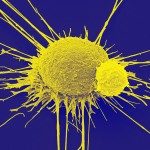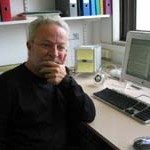Link to Pubmed [PMID] – 7869056
J. Exp. Med. 1995 Mar;181(3):993-1003
We studied the interactions of male-specific T cell receptor (TCR)-alpha/beta-transgenic (TG) cells with different concentrations of male antigen in vivo. We constructed mouse chimeras expressing different amounts of male antigen by injecting thymectomized, lethally irradiated mice with various ratios of male (immunoglobulin [Ig] Ha) and female (IgHb) bone marrow. These chimeras were injected with male-specific TCR-alpha/beta-trangenic cells. These experiments allowed us to monitor antigen persistence and characterize antigen-specific T cells in terms of their frequency, reactivity, and effector functions (as tested by elimination of male B cells in vivo). In the absence of antigen, virgin TG cells persisted but did not expand. Transient exposure to antigen resulted in cell expansion, followed by the persistence of increased numbers of antigen-reactive T cells. In contrast, antigen persistence was followed by two independent mechanisms of tolerance induction: anergy (at high antigen concentrations), where T cells did not differentiate into effector functions but persisted in vivo as unresponsive T cells, and exhaustion (at lower antigen concentrations), where differentiation into effector functions (B cell elimination) occurred but was followed by the disappearance of antigen-specific T cells.


